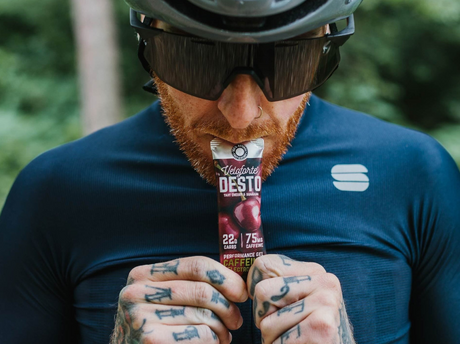A nutrition strategy isn't necessarily the first thing that comes to mind after an injury. Sure, rest is important and a top priority, but could there be something like rehabilitation nutrition? Little effort, big benefit?
Of course, the specific composition of your diet ultimately depends on the type of injury. There is no single food that guarantees healing. However, you can support the healing process with a few simple tricks.
Rule No 1: No Caloric Deficit
In general, your energy needs are reduced when you're injured, but this deficit is usually minimal because inflammation, wound healing, and your remaining mobility require a lot of energy. If calorie intake is restricted, the healing process may slow down. Especially in the early stages of injury, carbohydrates play a central role as they counteract catabolic processes. The risk of muscle loss is minimized (Papadopoulou, 2020). Complex carbohydrates and whole grains are ideal; avoid alcohol and added sugar.
Rule No 2: Plenty of Protein
Even if you're injured, your protein needs remain at least as high as when you're training. Proteins provide amino acids that are essential for the repair and maintenance of muscles, tendons, ligaments, and bones. This way, you can maintain important muscle mass and minimize breakdown. Ideally, aim for 1.7-2.0 g of protein per kg of body weight. Yes, you read that correctly – for a 75 kg athlete, that would be 130-150 g. It's best to distribute protein intake evenly throughout the day and consume it from a variety of sources to ensure a wide range of amino acids.

Rule No 3: Drink
Even mild dehydration can change blood osmolality and the hydration status of your cells. This can lead to protein breakdown, resulting in muscle mass loss (Hill and Hill, 1998). Adequate hydration is essential, even when you're injured. It's important to find a balance; a good indicator is your own sense of thirst. If you're running to the bathroom every 20-30 minutes, you may have overdone it. Generally, pale, clear urine is a good sign of proper hydration.
Vitamins and Supplements
Food first: Nutrient intake should primarily come from a balanced diet. There is little solid data supporting the use of supplements for injury recovery. However, if you still want to give it a try:
- Leucine: (BCAA, essential branched-chain amino acid) Can reduce anabolic resistance, helping to maintain muscle protein synthesis, especially in the early stages of injury. Foods rich in leucine include: nuts, fish, meat, cottage cheese, eggs, soy drinks, and whole grains.
- Creatine: A few studies show that supplementing with 20 g/day over 2 weeks can limit muscle and strength loss. Studies suggest using it only short-term!
Vitamin C: Plays an important role in collagen production. Collagen is the main component of bones, muscles, tendons, and skin. Vitamin C also acts as an antioxidant.
Vitamin D and Calcium: If you're dealing with a bone injury, definitely check your status! Calcium is essential for bone building and maintenance, but adequate calcium absorption is impossible without sufficient vitamin D. Calcium is found in dairy products, broccoli, almonds, and tofu. Vitamin D-rich foods include salmon and egg yolks.
Collagen: Tendon, ligament, and muscle injuries can benefit from increased collagen intake, as long as your baseline nutrition is on point. (PILLAR Collagen Repair).
 Antioxidants: Free radicals act as signaling molecules for wound healing. For this reason, antioxidants can slow down the healing process. This topic must be approached carefully; antioxidant supplementation is currently not recommended during periods of immobility.
Antioxidants: Free radicals act as signaling molecules for wound healing. For this reason, antioxidants can slow down the healing process. This topic must be approached carefully; antioxidant supplementation is currently not recommended during periods of immobility.
Take-home Message: Keep fueling!
Malnutrition is a risk factor for injuries!
Recovery Cocoa
200 ml milk or plant-based drink, heated
1-2 teaspoons grated dark chocolate (or real cocoa)
1 teaspoon honey
¼ teaspoon cinnamon or 2 pinches of chili, stir in
Sources
- Papadopoulou S (2020). Rehabilitation Nutrition for Injury Recovery of Athletes: The Role of Macronutrient Intake. https://pubmed.ncbi.nlm.nih.gov/32824034/
- Hill AG, Hill GL (1998). Metabolic response to severe injury. British Journal of Surgery, 85(7), 884-890. https://academic.oup.com/bjs/article-abstract/85/7/884/6269957
- ÖGSE, Nutrition in the Rehabilitation of Musculoskeletal Injuries in Sports, Sports Nutrition Textbook 2017
Janina Seitner
Janina is a Sports Nutrition Coach, studying Exercise Science and Sports Nutrition, and is a trail runner. With fuelthedistance.de, she helps athletes in team sports and endurance disciplines not only understand the "why" but also the "how" behind sports nutrition.










